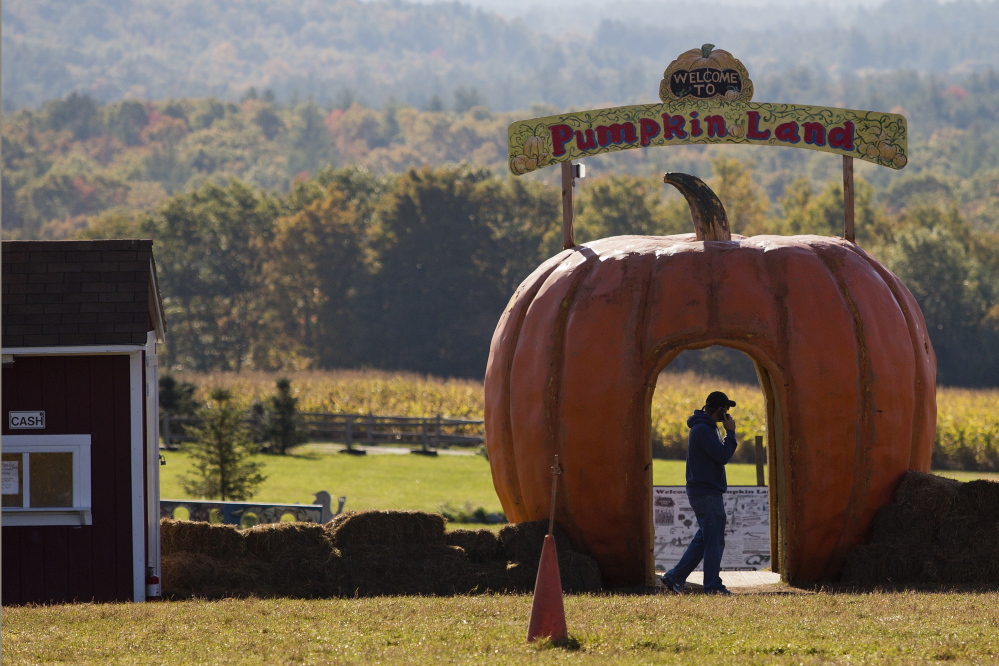BATH — Almost two years ago, David Brown was in the driver’s seat of the 1979 CJ-5 Jeep that was towing a haunted hayride wagon in Mechanic Falls and lost control after it crested a steep hill, careening down the slope and into a tree.
The accident killed a 17-year-old Oakland girl, Messalonskee High School student Cassidy Charette, and injured more than 20 others. Among the injured was Brown himself, who suffered a concussion and several broken ribs.
On Monday, Brown took the witness stand at his trial on a misdemeanor charge of reckless conduct.
Prosecutors from Androscoggin County are trying to prove that Brown, a 56-year-old South Paris resident with a Class B commercial driver’s license, consciously disregarded the risks associated with the four-wheel drive, automatic shift vehicle he operated that night in October 2014.
But in his defense Monday, Brown argued that he had no inkling of mechanical problems with the vehicle and that he couldn’t have anticipated the brakes would suddenly and catastrophically go out on him.
“I started down over the hill and my foot went right to the floor,” Brown testified. “I tried pushing the brakes two, three times and nothing was happening. I stuffed it into park. I stuffed it into reverse. Beyond that, I was picking up speed.”
The emergency brake was also out on the Jeep, a fact that Brown said Monday he regrets.
Prosecutors allege that Brown put at bodily risk the employees and passengers on the hayride.
Several investigators who studied the Jeep and the accident scene were not able to find concrete evidence of sudden brake failure, they testified last week.
When David York, an inspector for the Maine State Police, performed a mechanical autopsy on the Jeep several days after the crash, he found very little brake fluid in the car, he said last week. York also couldn’t find any leaks in the braking system, leading him to believe the fluids had not been replaced in some time, he said.
“That vehicle was unsafe, period, and it shouldn’t have been driven,” York said. “If he didn’t have brake fluid, he’s pumping air.”
But on Monday, Brown – whose testimony will continue Tuesday morning – said he knows the difference between the feeling of soft brakes and brakes that have totally given out.
“I’ve lost brakes completely,” he said. “It’s not a good feeling, especially that night. I thought I was dead. I was surprised I woke up.”
An investigator who interviewed Brown after the crash and a nurse who helped him at the crash site also reported him saying the Jeep’s brakes had gone out.
When asked by James Andrews, deputy district attorney of Androscoggin County, why the state police inspector found no ruptures in the Jeep’s brake lines consistent with Brown’s assertion of total brake failure, Brown said he couldn’t explain the discrepancy.
“I wish I knew,” Brown said. “I’m not stuttering. I don’t have an explanation.”
Brown also raised the possibility that something could have happened to the vehicle when it was unsupervised by investigators.
Brown’s attorney, Allan Lobozzo, called several of Brown’s current and former co-workers to the stand Monday. Two of them, Duncan Philbrick and Casey West, were working as actors on the hayride route that evening and saw the Jeep lose control. Both testified to hearing a popping sound – which neither could identify – followed quickly by Brown yelling an expletive.
“It rolled downhill very quickly,” recalled Philbrick, who was standing just feet away before it lost control. “Then it disappeared into the darkness.”
Lobozzo also called to the witness stand Per Erik Garder, a civil and environmental engineering professor at the University of Maine in Orono, who testified the Jeep could have continued to tow the hayride wagon down the steepest part of the hill where it crashed had it not been for the failure of the front brakes.
Brown is still employed by the owner of Harvest Hill Farm, Peter Bolduc, who owns a recycling business. Brown drives around the state picking up documents that businesses need shredded.
Bolduc, who regularly operated the Jeep while working on the farm, and others who testified Monday said they would never have allowed a vehicle to be used in the hayride that night if they knew it was at risk of brake failure.
Bolduc also said it had not been Brown’s responsibility to inspect or maintain the Jeep.
In his cross-examination of Brown, Andrews cited several people who reported Brown discussing or questioning the Jeep’s brakes and safety before the crash.
One of them, Keri Dekastrozza, an employee of the Mechanic Falls hayride, had ridden in the Jeep with Brown sometime before the crash, she said Friday.
“He said the brakes were a little soft,” she recounted of the ride, “but it didn’t sound like there was any concern in his voice.”
Brown told Andrews that he doesn’t recall making that statement, but that in fitting with the scary spirit of the hayride, he regularly said things that were meant to frighten passengers.
A grand jury also indicted the farm where the crash occurred, Harvest Hill Farms, and a mechanic who worked there.
Like Brown, the mechanic, Philip Theberge, was indicted on a misdemeanor charge of reckless conduct, a Class D misdemeanor punishable by up to 364 days in jail and a $2,000 fine.
The farm business was indicted on charges of manslaughter, aggravated assault, driving to endanger and reckless conduct. It has since filed for bankruptcy.
On Monday, the jury also heard testimony from State Fire Marshal Joseph Thomas, who said his office investigates accidents involving amusement rides but that the state does not have the ability to regulate motorized farm attractions such as hayrides.
Thomas was on the safety task force that was formed this year in response to the fatal hayride in Mechanic Falls. Without the passage of a law, the Hayride Safety Stakeholders Group found that neither the Maine State Police nor the state fire marshal’s office has the manpower or the resources to regulate motorized farm attractions, Thomas said Monday.
Send questions/comments to the editors.





Comments are no longer available on this story